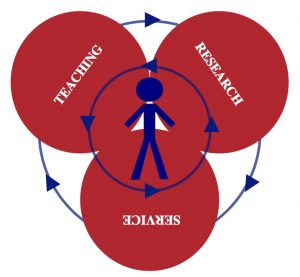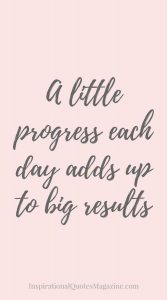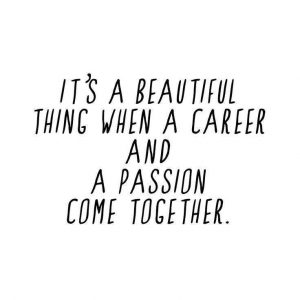by Lisa Melonçon
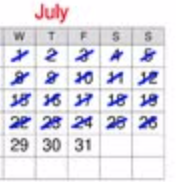
It’s at this time of the year—you can set a watch by it—that academics far wide start to lament the loss of summer. They realize that their grand plans of writing and “catching up” are not going to happen as they planned. Let me be clear, I’m right there with y’all. I feel the pain—literal pain—of the end of July.
For so many of us, this time marks a month (give or take a week) of when classes start, and those in any administrative role have to plan for all sorts of things meaning that the other part of work has already started.
I had declared this the #summeroffinish over on Twitter where I hang out a lot. I have so many things in various states of completion that I wanted to emphasize those to get them out the door. Well, as usual, life happens and the #summeroffinish didn’t happen as I had hoped. July really is cruel because it reminds us that we likely set our goals too high, that we need to rest and recuperate, and that sometimes we need to slow down and think (among other things).
 It’s also the cruelest time because it reminds us not only of what we didn’t do or get accomplished, but it also reminds us of the upcoming term and all that needs to be done. So we are crushed beneath past expectations and future expectations all at once. And for many of us, this crushing of academic time—this moment of being caught between—happens in late July.
It’s also the cruelest time because it reminds us not only of what we didn’t do or get accomplished, but it also reminds us of the upcoming term and all that needs to be done. So we are crushed beneath past expectations and future expectations all at once. And for many of us, this crushing of academic time—this moment of being caught between—happens in late July.
These feelings are a tricky thing to counter, but I want to offer a few things that may help us move on through late July.
Talk it Out
You have to get the angst out. So talk to your partner, your friends (academic and non-academic), your mentors, and your pets (or whatever, whomever moves you). Just talk. Explain what you wanted to get done and discuss why you don’t think it happened. Was it too high of expectations? Was it the weight of the world distracting you? Was the unstructured time too much to handle?
Talking it through helps you process what happened and clears up valuable brain space and visceral energy to focus on moving forward rather than looking back.
 Celebrate
Celebrate
I have written about this idea of celebrating (link) before, but it’s one that needs practice so that it becomes a habit. Celebrate every damn little thing that you accomplish. Set up a reward system for it. For those that follow me on Twitter know, I adore otters. I just finished an administrative task and rewarded myself with otter pajamas.
Even if it’s just taking a moment to be proud and to share that with someone else, helps to remind us that we do a lot all the time.
Strategize
It’s always good to use this time of the year to take stock of where you are in your career and where you may want to be. This is not an exercise to ramp up the cult of overproduction, rather, it’s a time to really reflect on what you want and what it takes to get there.
Look at your institutional documents and let them be a guide. They are a guide, and an important part of what should guide your work. You will not get extra tenure (and many of those things published as “extra” won’t count toward promotion to full). Merit raises, in the places they exist, will not necessarily be demonstrably larger if you work 12 hour days to get “one more thing out.” Try to believe those documents are there to guide you (cause they are) and then strategize with those in mind. (and if part of your strategy is to move locations, look to the documents—most are public—of a type place where you want to move.)
Try to imagine the next couple of years and then walk backward to set the larger goals for each term, including the one coming up.
Plan
I cannot repeat this enough because it is worth repeating. Pick a planner and plan. Link More importantly, be realistic. Realistic goals result in goals being met, which results in happier, healthier academics. The actual planning becomes the tactics to the strategy above.
Truly. Realistic goals. Exempting the folks starting brand new gigs, you know your life. You pretty much know when meetings are, how long it takes you to prepare for class, what you need in terms of self-care. Try not to pretend that this term will be better and perfect. Use your own self knowledge to plan realistically. (I can help you with this or find you someone who can help you with this.)
For those starting at a new job, you won’t get much done on “your own work” that first year. The learning curve of the institution and jut settling in to a new life takes up a lot of emotional, mental, and physical energy. Go ahead and make a plan. Then cut 2/3 of it. See Summer Sundays for more tips.
The great thing about many planners today is that they have places for you to put your big goals (strategies) and hopes and such and then to lay out the details.
Care of the self
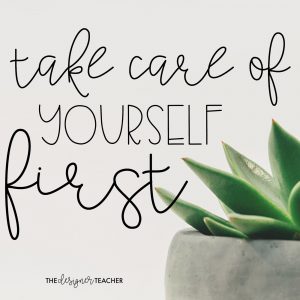 Please rest, exercise, take up a non-academic hobby, go outside, do things you like, watch trash TV, try to eat a little better, and laugh. Laugh as often as you can. Time is short no matter what and late July will soon pass and regular time will be restored.
Please rest, exercise, take up a non-academic hobby, go outside, do things you like, watch trash TV, try to eat a little better, and laugh. Laugh as often as you can. Time is short no matter what and late July will soon pass and regular time will be restored.
This job is hard. Late July is the hardest, and you are not alone.
Wishing you health, peace, and joy.


